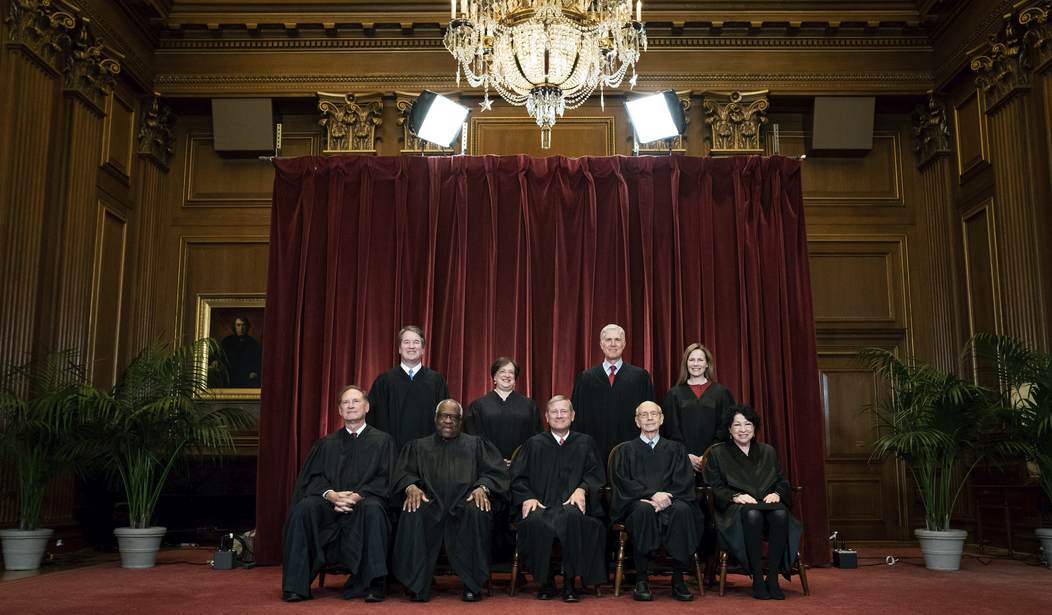Last week there was a ruling from the Supreme Court that Ed covered here, dealing with the intersection of religious freedom and LGBTQ rights. As far as the battle that Catholic Social Services specifically prevailed in goes, Ed broke that down well enough that I don’t need to rehash it again today. But one analysis from NBC News touched on a topic that addresses a broader issue and it’s worth digging into. Jo Yurcaba, writing for NBC, looked at the extremely narrow scope of a much broader issue that the court addressed in the decision. Rather than painting their findings with a broad brush, the justices picked out one specific aspect of the applicable law and essentially folded the entire ruling around those few sentences.
The court ruled that Philadelphia violated the Free Exercise Clause and discriminated against the agency in applying its licensing process, which allows contractors to request exemptions to parts of the contract.
Though advocates are split on the decision’s impact, they agree on one thing: Thursday’s ruling demonstrates a pattern of the high court taking the side of faith-based organizations and businesses without answering the larger question of whether they have a right to discriminate against lesbian, gay, bisexual, transgender and queer people.
Some advocates worry about how the decision could affect future cases, and the message it sends to LGBTQ adoptive parents and LGBTQ kids in the foster care system.
I would have to agree, and this is far from the only time we’ve seen the John Roberts court do this. Broad, sweeping decisions seem to be something that the court is studiously trying to avoid. They haven’t taken a truly major Second Amendment case in ages. And the decision in favor of Catholic Social Services mostly focused on whether contractors had the ability to request exemptions to individual portions of contracts.
This runs parallel to a second general topic I wanted to address and another one where the Supreme Court has delivered very unsatisfying responses on the rare occasions when they take up such cases. That would be the many lawsuits brought by transgender individuals around the country, particularly (but not limited to) the participation of transgender athletes in single-sex sports.
As far as the adoption agency goes, rather than putting yet another pin in the annals of contract law, could not the Supreme Court have answered the much larger questions for us? Specifically, can a private organization discriminate against people who are gay, lesbian, or bisexual based on a religious conviction? And perhaps even more importantly, does what the adoption agency did actually qualify as discrimination? I would hope that most of us could agree that discrimination based on any criteria is wrong and should not be allowed. But people’s definitions of what actually constitutes discrimination vary wildly. Blurring the line between an inconvenience and actual incidents of blatant discrimination or the denial of fundamental rights is how we wind up with so many bitter arguments on issues of social justice.
A similar pattern is seen with the court when it comes to the “T” in “LGBTQ.” The court has taken a few of these cases that focus on “gender identity” questions, but mostly just nibbled around the edges. One example was Harris Funeral Homes Inc. v. EEOC, which was decided in June of last year. In that case, a male employee of the funeral home announced that he would be “transitioning” to be a female and begin dressing that way for work. The employee was terminated, in part supposedly because the change would violate the company’s dress code.
The court eventually ruled 6-3 in favor of the employee, with the majority saying that Title VII prohibits discrimination based on (among other factors) “sex.” But the decision was bogged down in questions because dress codes are legally permissible in many businesses and, more to the point, it was not explained how the court was defining the word “sex” in that ruling. Was the court suggesting that thousands of years of medical science could suddenly be thrown out the window, ignoring the science of reproduction and human biology? Was the majority agreeing that a person can change or erase their genetic structure simply by declaring that they are doing so?
Think of the implications for so many other aspects of law and social structure if that’s the case. If sex isn’t a medical reality, how can there be men’s and women’s sports? The same thing applies to all the rest of the aspects of society and the law where the clear, biological difference between the genders is taken into account. The point is, there was once again a vastly larger question on the table, but the Supreme Court dodged it. They’ve done this on a number of issues besides the few we covered here today. And honestly, we deserve better.








Join the conversation as a VIP Member